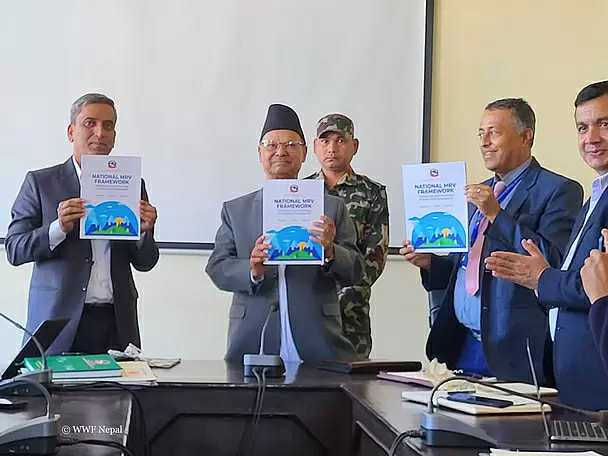KATHMANDU, June 11: Nepal's Integrated National Financing Framework (INFF) Financing Strategy 2025–2030 has been officially endorsed.
The five-year strategy was approved following a national workshop organised by the Ministry of Finance (MoF), in collaboration with the United Nations Development Programme (UNDP), to validate the draft strategy for pro-employment economic growth and sustainable development.
More than 60 stakeholders, including government officials, experts, and development partners, participated in the workshop held in the capital on Tuesday. The event marked the final round of consultations before the official launch of the strategy. Going forward, a high-level INFF Steering Committee, chaired by the Ministry of Finance, will oversee implementation and conduct annual reviews to track progress.
Govt seeks integrated strategy to link agri-business with clima...

Developed through an inclusive and evidence-based process with support from UNDP, the INFF offers a comprehensive framework to mobilise and align financial flows—public and private, domestic and international—to support Nepal's development priorities for the 2025–2030 period.
The strategy aims to promote job-oriented economic growth while ensuring climate resilience and financial sustainability. It is built around six mutually reinforcing pillars. The first, Fiscal Policy and Public Finance, prioritises high-quality capital spending, outcome-linked tax incentives, and streamlined tariffs to improve public investment outcomes.
The second pillar, Monetary Policy and Private Finance, focuses on linking credit to verified employment, deepening capital markets, and introducing tiered refinancing mechanisms for micro, small, and medium enterprises (MSMEs). The third, Public–Private Partnerships, seeks to standardise contracts, deploy viability-gap funding, and facilitate the issuance of Nepalese-rupee-denominated project bonds.
The fourth pillar, Financial Inclusion and Digital Finance, aims to strengthen microfinance institutions, expand data-driven rural credit, and build interoperable digital payment infrastructure. The fifth, Climate and Risk Finance, emphasises localisation of climate funding—enforcing an 80 percent localisation rule—while promoting the scale-up of green bonds and layered insurance mechanisms. Finally, the sixth pillar, Skills Development and Just Transition, focuses on demand-driven training, diversified skills financing, and promoting climate-smart employment pathways in rural areas.
The INFF is a United Nations-endorsed mechanism that helps countries translate global commitments—such as the Addis Ababa Action Agenda and the 2030 Agenda for Sustainable Development—into country-owned financing strategies. Nepal's framework is among the first globally to explicitly prioritise pro-employment, climate-resilient growth, reflecting the country's evolving development needs as it prepares to graduate from Least Developed Country (LDC) status.
Speaking at the event, Dhaniram Sharma, Joint Secretary at the Ministry of Finance, said the strategy offers a unified approach to addressing complex development challenges. “The new framework now developed combines all forms of financial flows towards a common objective of achieving job-oriented growth. We are thankful to UNDP for supporting us in the preparation and validation of the INFF Financing Strategy,” he said.
Kyoko Yokosuka, Resident Representative of UNDP Nepal, reaffirmed the agency’s support for the strategy’s implementation. “The INFF Financing Strategy focuses on creating employment opportunities through job creation, entrepreneurship, skill development, and career growth pathways. Inclusive economic growth should address gender equity and regional disparities in employment while prioritising jobs for new workforce entrants and returning migrants,” she said.







































